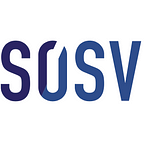As a company finances itself, it continually dilutes the ownership positions of everybody that has previously bought shares in the company or earned shares in the company as a founder. What a pro rata right enables an investor to do is to continually say, “I own 5% of the company.” When more financing events occur and more dilution occurs, it allows the existing shareholder of the company to purchase additional shares at the market rate in the future to maintain that same percentage ownership that they had before the financings took place.
Here’s an example: Say someone invested a half a million dollars into your company on a $5M post money valuation. As one of the investors in the first round, they own 10% of your company — $500K on a $5M post money valuation. Then, say you do extremely well, and you are now raising $10M on a $50M valuation. In order for that first round investor to maintain their 10% interest, they would actually have to, again, pay 10% of that next round of financing. They would have to put in another million dollars, but at that point, they would maintain a 10% interest in the company going forward. If the investor didn’t have pro rata rights, that initial equity that they purchased would go from being 10% down to, say, 8%, and they wouldn’t have any ability to follow on into the company.
When are pro rata rights good for founders?
Pro rata rights make it easier for founders to raise future financing rounds. Subsequent investors generally like when there is already an existing investor who is willing to continue to buy in (both figuratively and literally). If the original investor is continuing to invest, subsequent investors will be encouraged by the fact that the existing investor (who would know more about the company) has confidence in the founders and their company.
When are pro rata rights bad for founders?
Sometimes a subsequent stage investor doesn’t want existing investors to invest in a round, and instead prefers to invest a large amount and get a large percentage of the company in return. In those situations, it could be hard to balance the desire of your existing investors who want to keep investing, the desire of a new investor who wants a sizeable percentage ownership, and the founder’s ability to maintain a decent chunk of equity in their company.
So, a pro rata right is an ability for an earlier stage investor to keep supporting the company at the same financial terms that others coming into the company have. It’s considered a pretty fair and usual condition for all serious investors to have pro rata rights.
VC Lingo is a series from SOSV in which we define the terms and concepts you need to know to be fluent in the language of venture capital. Want another term defined? Comment below!
Legal Disclaimer: The VC Lingo series is meant to be a fun, educational approach to topics that affect startups and investors. The information provided is for educational purposes only and should not be relied on as legal, accounting, or other professional advice. All rights are reserved.
